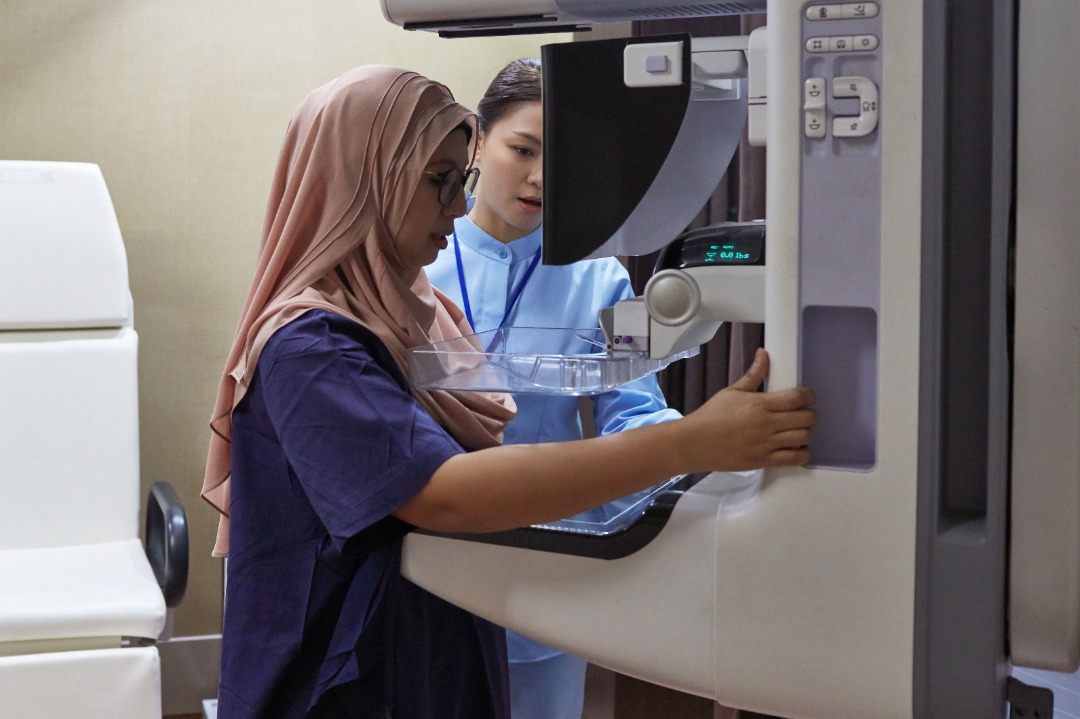KUALA LUMPUR, Feb 7 — The World Health Organization (WHO) released a new Global Breast Cancer Initiative Framework last Friday, providing a roadmap to attain the target to save 2.5 million lives from breast cancer by 2040.
The new framework, launched ahead of the World Cancer Day campaign on February 4, 203, recommends that countries implement the three pillars of health promotion for early detection, timely diagnosis, and comprehensive management of breast cancer to reach the targets.
There are more than 2.3 million cases of breast cancer that occur each year, which makes it the most common cancer among adults. In 95 per cent of countries, breast cancer is the first or second leading cause of female cancer deaths.
Yet, survival from breast cancer is widely inequitable between and within countries; nearly 80 per cent of deaths from breast and cervical cancer occur in low- and middle-income countries.
“Countries with weaker health systems are least able to manage the increasing burden of breast cancer. It places a tremendous strain on individuals, families, communities, health systems, and economies, so it must be a priority for ministries of health and governments everywhere,” said WHO director-general Dr Tedros Adhanom Ghebreyesus.
“We have the tools and the know-how to prevent breast cancer and save lives. WHO is supporting more than 70 countries, particularly low- and middle-income countries, to detect breast cancer earlier, diagnose it faster, treat it better and give everyone with breast cancer the hope of a cancer-free future,” he added.
Cancer in women, including breast cancer, leaves a devastating impact for the next generation. A 2020 study by the International Agency for Research on Cancer suggested that with an estimated 4.4 million women dying of cancer in 2020, nearly one million children were orphaned by cancer, 25 per cent of which were due to breast cancer.
Children who lose their mothers to cancer experience health and educational disadvantages throughout their lives, triggering generational, chronic social disruption, and financial harm in many cases.
“Countries need to ensure that this framework engages and integrates into primary health care. This effort would not only support health promotion, but also empower women to seek and receive health care throughout the life cycle,” said Dr Bente Mikkelsen, WHO director for non-communicable diseases.
“With effective and sustainable primary health care, we can really see a pathway to universal health coverage,” she added.
The newly published framework leverages proven strategies to design country-specific, resource-appropriate, health systems for the delivery of breast cancer care in low- and middle-income settings.
It outlines three pillars of action with specific key performance indicators:
- Recommending countries to focus on breast cancer early-detection programmes so that at least 60 per cent of the breast cancers are diagnosed and treated as early-stage disease.
- Diagnosing breast cancer within 60 days of initial presentation can improve breast cancer outcomes. Treatment should start within three months of the first presentation.
- Managing breast cancer so that at least 80 per cent of patients complete their recommended treatment.
Since 2018, WHO has been developing integrated initiatives in women’s and children’s cancers, calling also for the elimination of cervical cancer and a doubling of childhood cancer survival.
Taken together, these initiatives can revert the generational harm from cancers and save more than a million lives in the next ten years.












